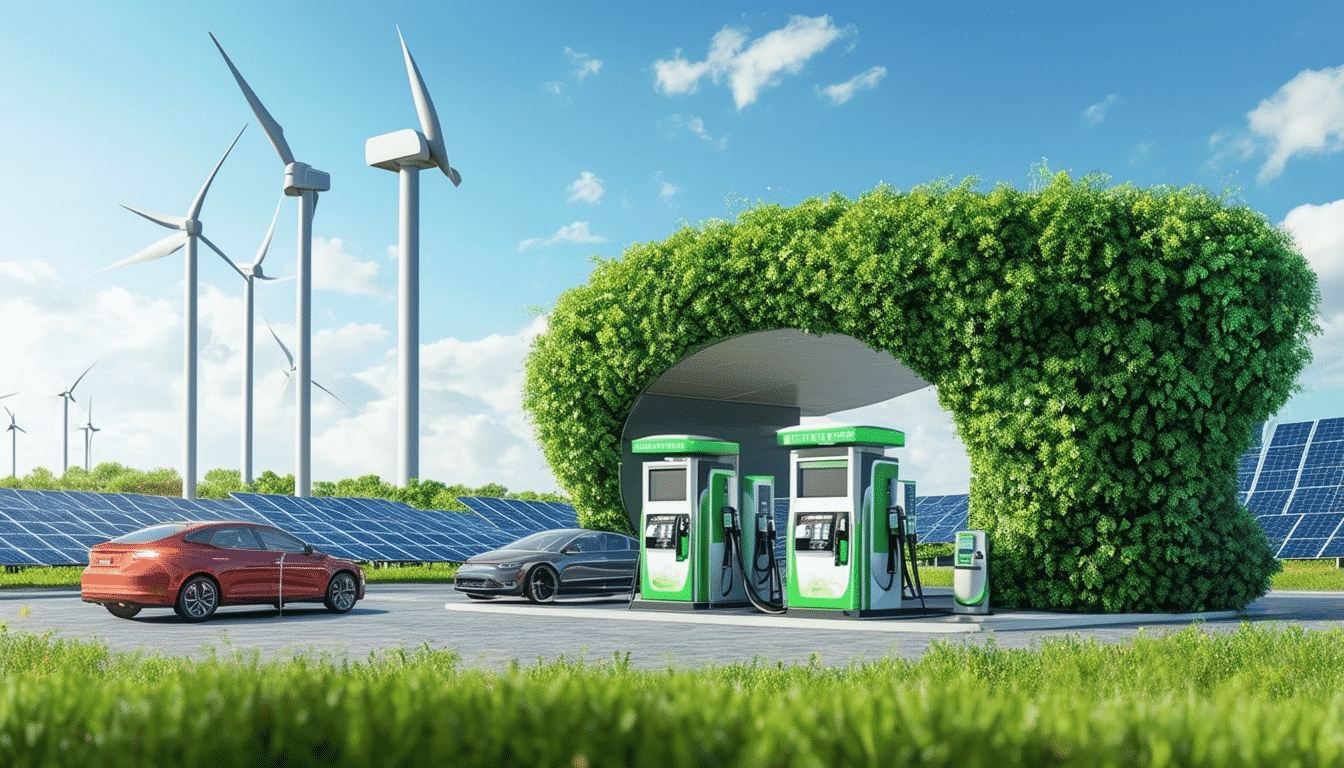Exploring the concept of circular economy in fuel use

The circular economy stands as an essential alternative in the search for sustainable solutions, especially in the context of fuel use. This model seeks to maximize resource utilization while minimizing waste and pollution. By integrating practices such as reuse, recycling, and renewal, it proposes an innovative approach that not only contributes to the reduction of carbon dioxide emissions but also promotes the use of biofuels as viable alternatives. The transition to a circular economy in the energy sector not only redefines how we consume fuels but also offers significant economic and environmental benefits.
The circular economy is presented as an innovative solution to address the environmental challenges we face today, especially regarding fuel use. This model not only seeks to optimize resource consumption but also proposes the idea of efficiently reusing and recycling materials. Below, the principles and benefits of the circular economy in the field of fuel will be explored, its importance in the fight against climate change, and examples of its application in everyday life.
Principles of the circular economy in fuel usage
The circular economy is based on three fundamental principles: eliminating waste and pollution, circulating products and materials, and regenerating natural systems. In the context of fuel, this translates into the need to rethink how fossil and alternative fuels are produced, consumed, and disposed of. For example, instead of focusing solely on the extraction of non-renewable resources, the circular economy proposes the production of biofuels from organic waste, allowing the transformation of waste into energy.
Importance of the circular economy in the fight against climate change
Climate change is one of the greatest challenges of our time, and the way we use fuel plays a crucial role in this phenomenon. Adopting a circular economy model in fuel usage contributes to the reduction of greenhouse gas emissions. For example, biomethane, which is generated from organic waste, is virtually neutral in carbon dioxide emissions, representing a viable alternative to traditional fossil fuels.
Economic benefits of the circular economy
Implementing a circular economy model not only has environmental benefits but also translates into economic advantages. The optimization of resources and the reuse of materials can significantly reduce operational costs for businesses. Furthermore, sustainable practices can attract a new type of consumer who values environmental responsibility and seeks products and services that support this philosophy.
Practical examples of a circular economy in the energy sector
There are several initiatives that illustrate the application of the circular economy in the energy sector. For example, some car manufacturers, such as Jaguar and Land Rover, are innovating to create sustainable electric vehicles, thereby reducing their dependence on fossil fuels. These vehicles not only use renewable energy but also create a responsible production cycle by incorporating recycled materials into their manufacturing.
The role of energy efficiency in the circular economy
The relationship between energy efficiency and the circular economy is intrinsic. More efficient fuel use implies less waste and a lower environmental impact. Strategies such as regular maintenance of vehicles and the adoption of advanced technologies can maximize fuel efficiency. Programs that promote the energy efficiency community help both businesses and citizens optimize their energy consumption.
Future perspectives of circular economy and fuel
Looking towards the future, the concept of circular economy has great potential to transform the energy sector. As technologies advance, so do the opportunities to generate fuels more sustainably. Research into processes such as pyrolysis of organic waste is on the rise, seeking to improve efficiency and create new energy sources from waste previously considered useless. This type of progress not only reduces waste but also offers innovative solutions that could define the future of fuel usage.
Conclusions
In summary, the circular economy offers a promising framework for transforming fuel usage. By promoting sustainability and efficiency, this model not only addresses critical environmental issues but also presents significant economic opportunities. As society moves towards a greener future, the adoption of circular practices will be essential across all sectors, including energy.
The circular economy is presented as an innovative and sustainable solution to the traditional linear model of production and consumption. This approach seeks to reduce waste and maximize resource reuse, which is fundamental in the search for more responsible ways of using fuels. By applying the principles of the circular economy, it is possible to transform the way fuels are produced, distributed, and used while simultaneously promoting a lower environmental impact.
One of the central axes of this model is resource optimization. Instead of using fossil fuels linearly and disposing of them, the circular economy proposes innovating in the production of biofuels and recovering energy from waste. For example, the use of biomethane, which is a fuel produced from organic matter, becomes an effective alternative to reduce carbon dioxide emissions and combat climate change.
Furthermore, recycling products and using renewable fuels help conserve natural resources and minimize the impact on ecosystems. Adopting a circular approach fosters the creation of a more sustainable industry, where fuels result from careful processes that consider the entire product cycle, from production to final disposal.
Initiating a transformation towards a circular economy in the fuel sector also involves educating consumers about their role in preserving the environment. Implementing changes in consumption habits and fostering greater awareness about the importance of choosing sustainable fuels are necessary steps to achieve a significant impact.




